COVID-19 changed our lives in 2020. To respond to the educational challenges posed by the pandemic, our team reacted quickly, adapting many of our processes and lessons to an online format and launching our “Home Classroom Program” to provide English and digital literacy lessons to our beneficiaries. At the height of the fight against the epidemic, we also continued our efforts to improve our curricula and teaching resources, to explore new partnerships and to develop online and on-site programs to support the education of primary, middle and vocational school students in China.
In 2020, more than 450 Stepping Stones’ volunteers and teachers delivered 5,968 lessons to more than 4,450 disadvantaged students in China, most of them through the internet. We also supplied professional training and follow-up support to 20 English teachers teaching in rural schools. While we have reached fewer beneficiaries than in previous years, we have ensured they received a sufficient number of quality lessons to enable them to acquire knowledge and make progress in English or digital skills. Thanks to the commitment and resilience of our volunteers and sponsors, each of our students received on average more than 11 lessons in 2020.
Online English
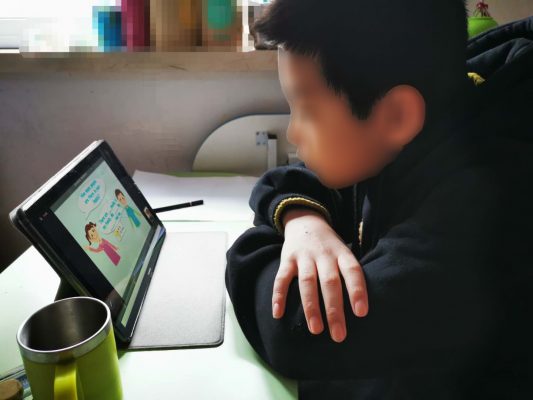
In 2020, while many of our on-site programs were canceled, suspended or delayed amid the COVID-19 pandemic, our online English programs developed rapidly thanks to our partners, such as Bloomberg and Shanghai Soong Ching Ling Foundation, who have been the backbone of our response to the crisis.
In addition to launching our Home Classroom (HCR) Program at the dawn of the pandemic to provide online lessons to children separately located in their own homes, once the schools re-opened in June, we scaled up our Videolink Program, which consists of volunteers teaching online to children located in school classroom. From the central plains to the remote southwestern mountains of China, 3,065 students joined our online programs, 1,793 in our new HCR Program and 1,272 in our Videolink Program. Our volunteers delivered an impressive total of 4,366 online English lessons in 2020.
Originally designed as a temporary intervention to respond to the Covid-19 crisis, our HCR Program has revealed itself to be very effective in achieving good educational outcomes for students. Our impact evaluations suggest that the program has a positive impact on students’ confidence, motivation and skills in English, especially on their confidence to speak English in class and to improve their English grades.
Shanghai
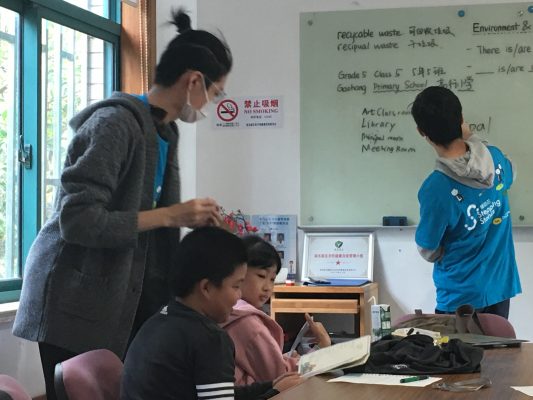
Our “on-site” English Teaching Program in Shanghai has been severely impacted by the pandemic, with many programs canceled or postponed, especially the ones located in schools for migrants. In spite of the challenges, we were able to resume most of our community centre programs starting from the summer and to start teaching at two new sites, with new partner Shanghai Ruijia Social Work Center. In 2020, the program benefited 14 project sites in Shanghai, and the number of beneficiary students reached 433.
We were also pleased to continue our collaborations with Shanghai Qingcongquan Training Centre for children with special needs and with Shanghai Young Bakers and Shanghai K Foundation to provide vocational oral English courses to adults and youth.
Rural
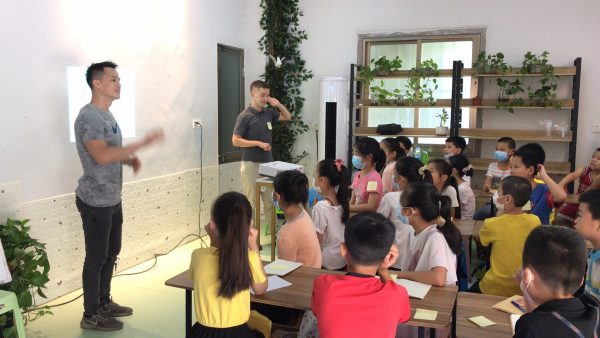
As was the case for our Shanghai Teaching Program, our plans to send volunteers to teach in rural areas were extremely hampered by the pandemic. Despite the travel restrictions, we were able to send 7 individual volunteers to 4 rural teaching sites in Henan, Zhejiang and Fujian. They taught 132 English lessons to 305 students, who welcomed our creative teaching methods.
Teacher Training
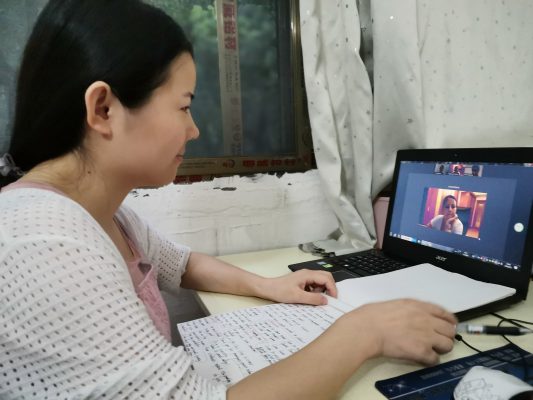
While our Shanghai Teacher Training Program was postponed to Spring 2021, we were able to proceed with our plan to provide online training to teachers in Jiangxi Province. 20 teachers from schools located in Xin’gan County participated in our online teacher training throughout the year, benefitting more than 2,000 students. Teacher training programs provide one of the most efficient ways to improve English teaching for the largest number of students over the long-term.
Digital Literacy
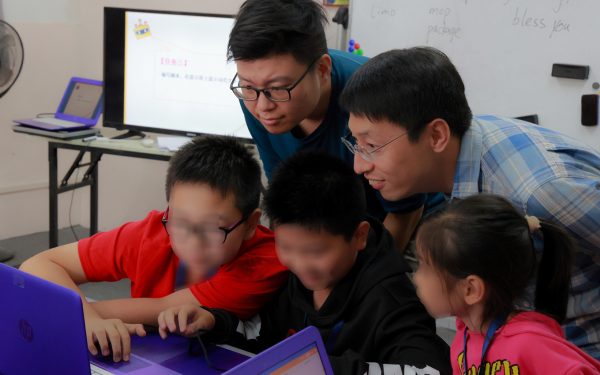
While our Digital Literacy Program was limited to online lessons during the first half of the year, the situation greatly improved during the fall semester. Not only we were able to resume many of our programs in schools in Shanghai and Zhejiang, but we also opened new sites and launched new programs to support primary, middle and vocational school students. Thanks to the continued support of Transparent Fish Fund and The Ping and Amy Chao Family Foundation, our teachers and more than 80 volunteers were able to teach 632 lessons to 879 students at 13 teaching sites (8 on-site and 5 online).
2020 was also a year of accelerated innovation for our Digital Literacy Program. In addition to developing online lessons, our team developed and launched new activities and courses, such as design thinking, STEAM programming, self-growth awareness and career planning training. We would like to extend our thanks to a growing number of local and international partners – in particular Deloitte, Let’s Code, Magic Steam (中文:更远教育), the Consulate General of Ireland in Shanghai and EP Academy for contributing to the program in different ways.
Of course, as we always say, none of this would be possible without the tireless efforts and dedication of all of our volunteers, and this is even more true in these difficult and exceptional times. As the Spring Festival approaches, we sincerely thank all our volunteers, donors and other supporters, and wish everyone good health, good luck and much happiness! We look forward to working with you all next year!
